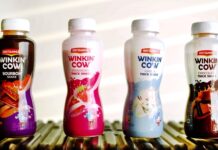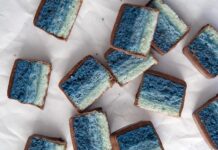Stora Enso and packaging technology company Pulpex have joined forces to industrialize the production of eco-friendly paper bottles and containers made from wood fiber pulp. These renewable products will offer an alternative to PET plastics and glass. The exclusive partnership leverages Stora Enso’s formed fiber technologies and ability to convert end-products at an industrial scale.
The joint development agreement is formed exclusively between Stora Enso and Pulpex, a sustainable packaging technology company established by Diageo (makers of Johnnie Walker, Smirnoff, and Guinness) and Pilot Lite (a venture management company). The partnership aims at the large-scale industrial production of renewable and recyclable paper bottles and containers that degrade readily in the natural environment.

Using sustainably sourced fiber pulp, the formed bottles and containers would enable a significantly lower carbon footprint compared with glass or PET. A formed fiber product is manufactured by pressing various wood-based pulps into a three-dimensional shape in a molding machine. The partnership is focused on developing a high-speed production line expected to be operational in 2022.
“We see great potential in combining development skills of Pulpex with our industrial capabilities, says Sohrab Kazemahvazi, SVP Formed Fiber at Stora Enso. “This cooperation marks an important step in bringing to market a truly sustainable alternative to plastic bottles and containers while offering end-user qualities that match those of traditional packaging in the beverage market.”
Sora Enso collaborated with Pulpex to produce paper bottles
Using Stora Enso’s formed fiber material, Pulpex will produce paper bottles for an array of global brands across various market applications, from homecare and personal care products to alcohol- and non-alcohol beverages and liquid foods. All of Stora Enso’s wood fiber pulp comes from sustainable, verified sources. The customizable Pulpex bottle allows for embossing, labeling, and colored pigments to fit brand needs and easily integrates into any packaging manufacturer’s existing filling infrastructure.
“We are delighted to have Stora Enso involved with Pulpex and are looking forward to the tangible benefits of such a formidable collaboration that will undoubtedly help us over the coming months as we seek to make our new, high-speed production lines available to all our partners,” says Scott Winston, director, Pulpex Limited.

Paper packaging – 80% recycled in Europe and the US
The global beverage packaging market is worth an estimated US$ 117 billion and is forecast to grow by 4.5% and reach US$ 170 billion by 2027. Globally, plastic packaging is currently growing at 5% CAGR and represents about 40% of global beverage packaging. Today across the EU and the US, only around 30-40% of all plastic bottles are collected for recycling. However, for paper and cardboard recycling, the average is nearer 80%, just ahead of glass and aluminum (75-80%).
Pulpex (www.pulpex.com) is a new sustainable packaging technology company established by venture management firm Pilot Lite and spirits producer Diageo. The company has developed the world’s first 100% PET-free paper bottle. Made from sustainably sourced pulp, the Pulpex bottle meets food safety standards and will be recyclable in standard paper waste streams, which have a far higher yield than plastic waste streams.
Leading consumer packaged goods (CPG) companies, including Diageo, PepsiCo, Unilever, GSK Consumer Healthcare, and Castrol, have joined the Pulpex global partner consortium. Each company has committed to incorporating Pulpex technology into its brand packaging and collectively producing 750 million paper bottles per year.
IndiFoodBev — authentic, impactful and influential
An English-language food and beverage processing and packaging industry B2B platform in print and web, IndiFoodBev is in its third year of publication. It is said that the Indian food and beverage industries represent approximately US$ 900 billion in revenues which implies more than 20% of the country’s GDP. Eliminating the wastage on the farmside can help to deliver more protein to a higher number of the population apart from generating sizable exports. The savings in soil, seeds, water, fertilizer, energy and ultimately food and nutrition could be the most immense contribution that country is poised to make to the moderation of climate change.
To improve your marketing and grow sales to the food and beverage processing and packaging industry, talk to us. Our research and consulting company IppStar [www.ippstar.org] can assess your potential and addressable markets in light of the competition. We can discuss marketing, communication, and sales strategies for market entry and growth.
Suppliers and service providers with a strategy and budget for targeted marketing can discuss using our hybrid print, web, video, and social media channels to create brand recognition linked to market relevance. Our technical writers are ready to meet you and your customers for content.
The second largest producer of fruit and vegetables in the world is continuously expanding processing capacities and delivery systems with appropriate innovative technologies. We cover product and consumer trends, nutrition, processing, research, equipment and packaging from farm to thali. Get our 2025 media kit and recalibrate your role in this dynamic market. Enhance your visibility and relevance to existing markets and turn potential customers into conversations. Ask for a sample copy of our bi-monthly in print or our weekly IndiFoodBev eZine each Wednesday.
For editorial info@ippgroup.in — for advertisement ads1@ippgroup.in and for subscriptions subscription@ippgroup.in
Naresh Khanna – 10 February 2025
Subscribe Now











